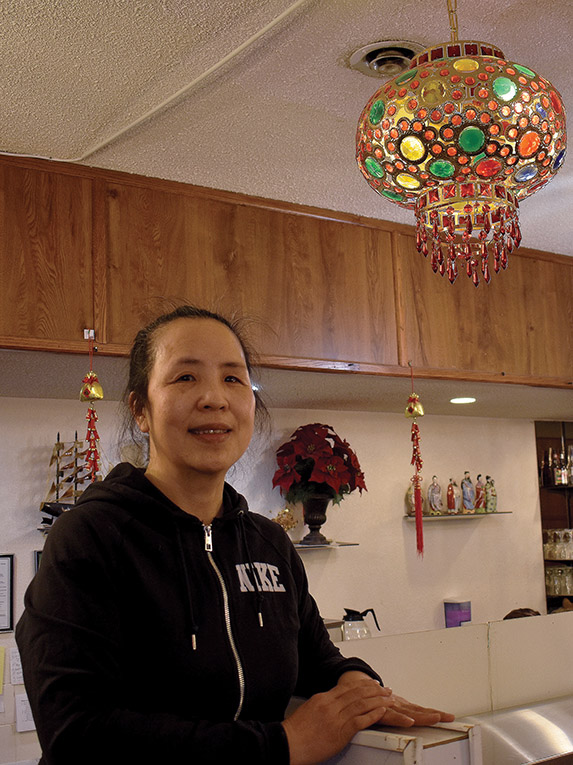Chinese Lantern Festival 2021
Posted on March 4, 2021 by Maple Creek Ella Yan, manager at Bel-Air Gardens in Maple Creek
Ella Yan, manager at Bel-Air Gardens in Maple CreekAt Christmas and on other special occasions, Ella Yan, manager at Bel-Air Gardens, turns on the restaurant’s two Chinese lanterns.
On Friday, Feb. 26, there was such a special occasion – Chinese Lantern Festival, which is the climax of the Chinese New Year holiday and falls on the 15th day of the first Chinese lunar month.
Over the years, the festival has acquired many meanings. It celebrates family reunions, socializing and freedom, and also features ancient spiritual traditions.
Ella bought her two Chinese lanterns about three years ago while visiting Hong Kong.
The multicoloured crystal lanterns were made in China, where the festival usually sees people take to the streets.
“I’ve taken part in the festival,” said Ella. “It is a huge celebration.”
This year, of course, the coronavirus pandemic meant that celebrations around the world had a different look.
It is thought the Lantern Festival originated in the Han Dynasty, more than 2,000 years ago, when Buddhism was popular in China.
After hearing that monks would light candles for the Buddha on the 15th day of the first lunar month, Emperor Ming ordered the imperial palace and temples to light candles and the citizens to hang lanterns. In modern times, red lanterns are hung in Chinese streets, within houses and in stores. They often depict traditional Chinese folklore and riddles.
Many traditions and activities take place during the Lantern Festival, from lighting lanterns to moon gazing and lion dances to eating rice balls.
The trademark food of the celebration is “yuan xiao” – the name of the festival – and is one of many Chinese New Year desserts in the form of rice dumplings, with sweet fillings made of syrup, red bean paste and black sesame paste.


Leave a Reply
You must be logged in to post a comment.